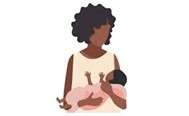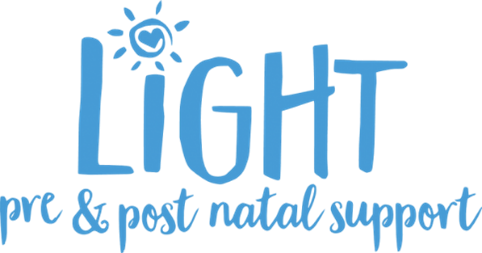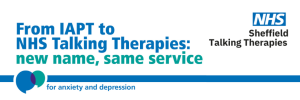Emotional Wellbeing
Welcome to the Jessop Wing emotional wellbeing and mental health information page.
Here you will find information about how your mental health may be affected throughout the perinatal period (from conception until baby is one year old) and services you can access to help support you.
Becoming a parent or guardian to a new baby is a life-changing event, whether the baby is your first or you have other children. Sometimes we can face unexpected and confusing thoughts and feelings as we process pregnancy, birth experiences, and whilst recovering physically and adjust to our new role and responsibilities as a parent.
Each person adapts to becoming a parent or guardian in their own unique way but there are common reactions that many new parents share. This information describes some of the thoughts and feelings new parents and guardians might experience, what might help them to cope and lets you know about the support available
The Emotional Wellbeing Team:
The Emotional Wellbeing team is a small specialist midwifery team that are dedicated to supporting women who may need additional care around their emotional wellbeing and mental health during pregnancy and in the early postnatal period when relationships are developing with their new baby. They work closely with other specialist services to get the right support for and in a way that works for them and their family.
They work closely with the women to plan, and co-ordinate care based on their individual needs. For example:
- 1-1 phone calls
- Collaborate on an emotional wellbeing plan to help staff support their needs.
- Wellbeing clinics in the family hubs
- Supporting at hospital appointments
- Support for inpatients.
- Working closely with medical staff to adapt care plans.
If you feel you would benefit from our support, please speak to your community midwife who can refer you.
Common worries in Pregnancy
Whether your pregnancy was planned or unexpected, it’s natural to have mixed emotions about being pregnant and it’s important to talk about how you are feeling with someone you trust, whether that is your partner or a friend or family member.
Having a baby changes a lot of things and it can be common to worry about the future and how life might change. Good emotional health does not mean that you’ll always feel happy, or that feelings of sadness or stress won’t surface. In addition, pregnancy hormones can also contribute to giving you this mix of emotional highs and lows, especially in the first three months.
Whilst it is normal to have periods of worry or stress when you are pregnant, some people find these feelings don’t go away or can find them overwhelming and this can be a sign you may want to consider reaching out for help.
For about 1 in 5 people, this time can be associated with a range of mental health challenges which range in severity.
These can include depression or anxiety, it can trigger obsessive compulsive disorder or post-traumatic stress, whist others may experience tokophobia (fear of childbirth) or may exacerbate an eating disorder or symptoms such as hearing or seeing things that aren’t here or having unusual beliefs.
These problems may have been present at a previous time in your life and may recur in the perinatal period, or it may be that the problems develop for the first time during this period.
“I’m currently pregnant and very worried about giving birth”
Some expectant parents find that their anxiety during pregnancy about childbirth, can feel very distressing, overwhelming, or consuming and can be known as “tokophobia”. There are lots of reasons why people might be vulnerable to develop severe anxiety about childbirth or tokophobia. These can include previous life experiences (e.g., previous birth experience, difficult life experiences and what other people have told you), your experience of pregnancy, physical changes, your current situation, and the support available to you to cope.
The important thing to remember is that you are not alone in experiencing any of these unwanted and difficult feelings and that there are people who can support you.
What might help?
- Ask for support
It is important to talk to your midwife as soon as possible about any fears you might have about the birth. Talking to someone who can understand worries and answer any questions you might have can help to significantly reduce anxiety. Your midwife will also be able to help you think about what your birth preferences are and what might help you to feel safe labour. They might also recommend a tour of the maternity unit if you are having a hospital birth. Sometimes, your midwife might suggest referring you to a specialist in emotional wellbeing such as a psychologist to support you during pregnancy.
- Look at reliable information
When we are worried about something, it can be tempting to spend time looking on internet for information. It is important to be careful when looking on the web as some sources of information might not be accurate. Each person is different and so each experience of childbirth can be different. In the same way, only speaking to a few close friends or family members can be problematic as they may only have their own experience to reflect on. Instead, it can be helpful to speak to health care providers such as your GP, midwife and obstetrician who should have access to up to date evidence-based information.
Self help
Share your worries:
Talking to people about how you feel can be a huge relief and help remind you that you’re not alone. You’ll probably find that other people are having similar experiences, and you may get some good ideas about how to deal with any problems. You may also find it helpful to talk to your midwife or doctor about how you feel.
Look after yourself:
Eating a healthy diet, enjoying regular exercise and getting plenty of sleep can help us to feel our best and help us to better cope with what life has to throw at us. Lean on your community - find out what is going on in your local community to support your wellbeing. For some this might be about attending places of worship, maintaining spirituality, volunteering, being part of groups and causes that make you feel good.
Tackle stressful issues one at a time:
If you’re feeling stressed, try to break your worries down and tackle them one at a time, starting with the ones you have some control over.
Additional Support Available
Birth in Mind Service

Becoming a parent is a big change. Having a baby can bring happiness, but it can also feel overwhelming. This is especially true while your body and emotions are recovering. In the first few weeks after birth, it is common to have upsetting feelings. These may include unwanted thoughts, upsetting memories, or bad dreams. These feelings often improve with time. Talking to family, friends, your midwife, or your health visitor can help.
If you are still feeling upset about your birth experience after six weeks, please contact your health visitor or GP. They may refer you to the Birth in Mind Service. This service offers specialist support to help you understand how your birth has affected you emotionally. If needed, they may also refer you to other services to make sure you get the right support.
Your health visitor and GP are the best people to make a referral. They know about your life and health before your baby was born. They also know what information is needed to support you and can continue to check how you are feeling if you are struggling.
If you are already getting help from another mental health service, please talk to them about your birth-related concerns first. They can make the right referrals if needed. If you need a follow-up appointment with a doctor after surgery or a medical procedure linked to childbirth, your GP can refer you to a specialist.
If you have any concerns or complaints about your care, please contact the hospital’s PALS team at sth.pals@nhs.net.

Light is a local peer support charity that offers emotional support to families during the perinatal period. All staff and volunteers have their own individual stories and experiences.
They aim to raise awareness, reduce stigma and offer hope and support to families experiencing perinatal mental illness from pregnancy and beyond.
Light provides peer to peer support in the form of support groups, 1-1 sessions or via telephone, video call or email.
https://lightpeersupport.org.uk

Sheffield Talking Therapies (formerly known as IAPT) offers a range of free courses & one to one talking therapies for adults(18+) living in Sheffield or with a Sheffield consultant.
They can offer treatment for stress, anxiety and worry or low mood.
https://www.sheffieldtalkingtherapies.nhs.uk/

Steel City Dads
Steel City Dads is open to all Dads and Co-parents who have children from pregnancy to 2 years old and are experiencing mild mental health and/or supporting Mums with perinatal mental health, birth trauma, child loss and miscarriage.
They support Dads in:
- Peer support groups and workshops
- Drop in support
- Email, phone and video support
- Self -care tips
Dads are really important and need to be able to access support when they need it and understand why it’s essential for Babies development.
https://www.zestcommunity.co.uk/services/steel-city-dads/

The Sheffield Mental Health Guide is a website for Sheffield people of all ages.
‘We’re here to provide information on mental health services, activities and resources that are available to you, or someone you are supporting. Our website has been co-created with the community and people who have lived experience of mental health.’
Parent Infant Relationship Service (PAIRS) | Sheffield Mental Health Guide
Early relationships influence the way that a baby’s brain develops. When parents and carers are able to tune-in and respond to their babies’ needs sensitively, in an appropriate and timely way, it lays the foundations for lifelong mental and physical health.
However, not all parents and carers find this easy. Lots of things can affect how you feel about your baby and yourself as a parent, and this can get in the way of developing a positive relationship with your baby.
PAIRS are a small team of psychologists and psychotherapists who are passionate about supporting parents, carers and professionals to make sure that every baby in Sheffield has the best possible start in life.
The PAIRS team are here to provide support so that you can build a strong and nurturing relationship with your baby or young child. They work with parents and carers and their babies from conception to age 3.
Perinatal Mental Health Team
The Sheffield Perinatal Mental Health Service provides specialist assessment and treatment to women and birthing people, and their families, living in Sheffield and struggling with their mental health or emotional wellbeing around the time of having a baby.
We offer confidential, non-judgemental care and treatment to women and birthing people experiencing mental health difficulties who are either planning to have a baby, are already pregnant or who have given birth in the last 12 months.
If you or your partner are in a mental health crisis:
Samaritans: 116 123 or text SHOUT to 85258
Sheffield Rethink: 08088010440
Crisis Resolution Home Treatment Team: 0114 2716310
You can also call NHS 111 or attend your local A&E department.
Useful Links:
Sheffield Suicide Support and Prevention - Information and help for anyone who is suicidal
The Birth Trauma Association
Getting Support With Mental Health During Pregnancy (tommys.org)
Action on Postpartum Psychosis | The national charity for mums and families affected by postpartum psychosis (app-network.org)
Welcome to Maternal OCD
Help for people with eating disorders — SYEDA - South Yorkshire Eating Disorder Association
Home - Aiming to change the lives of women injured during childbirth.
Birthrights - your human rights during pregnancy and maternity care